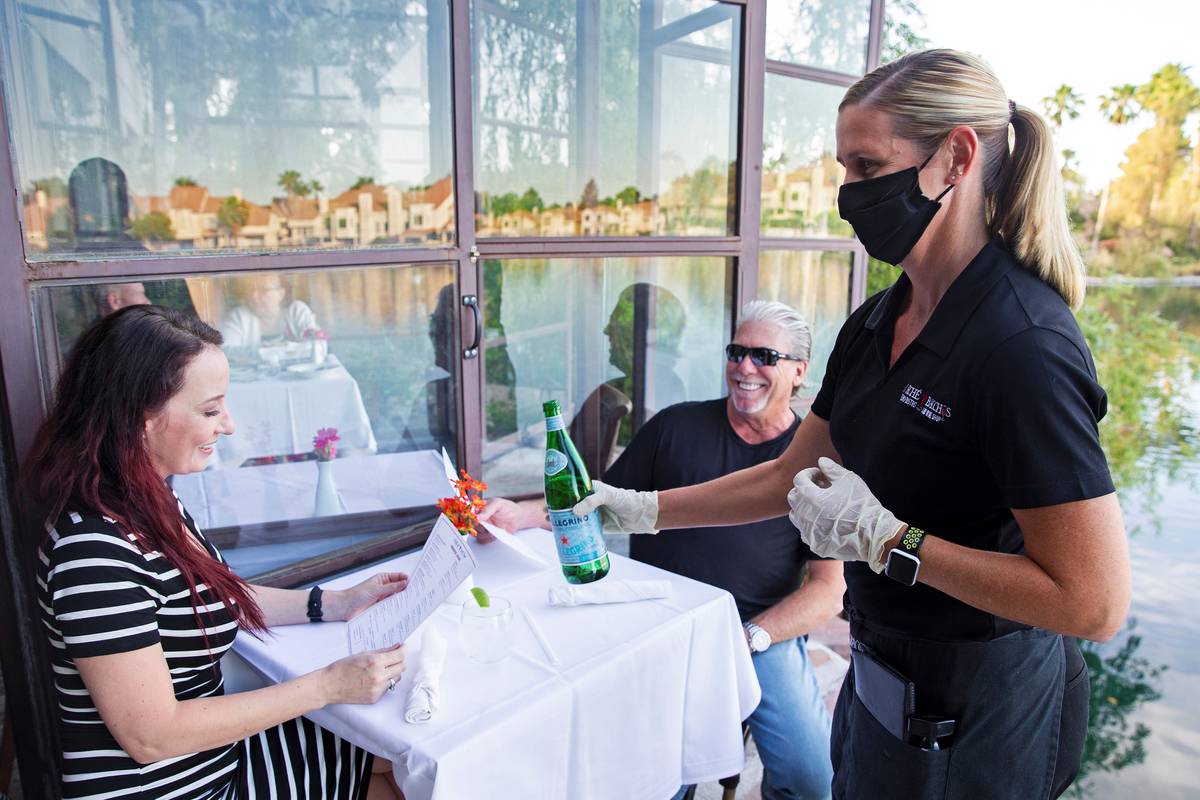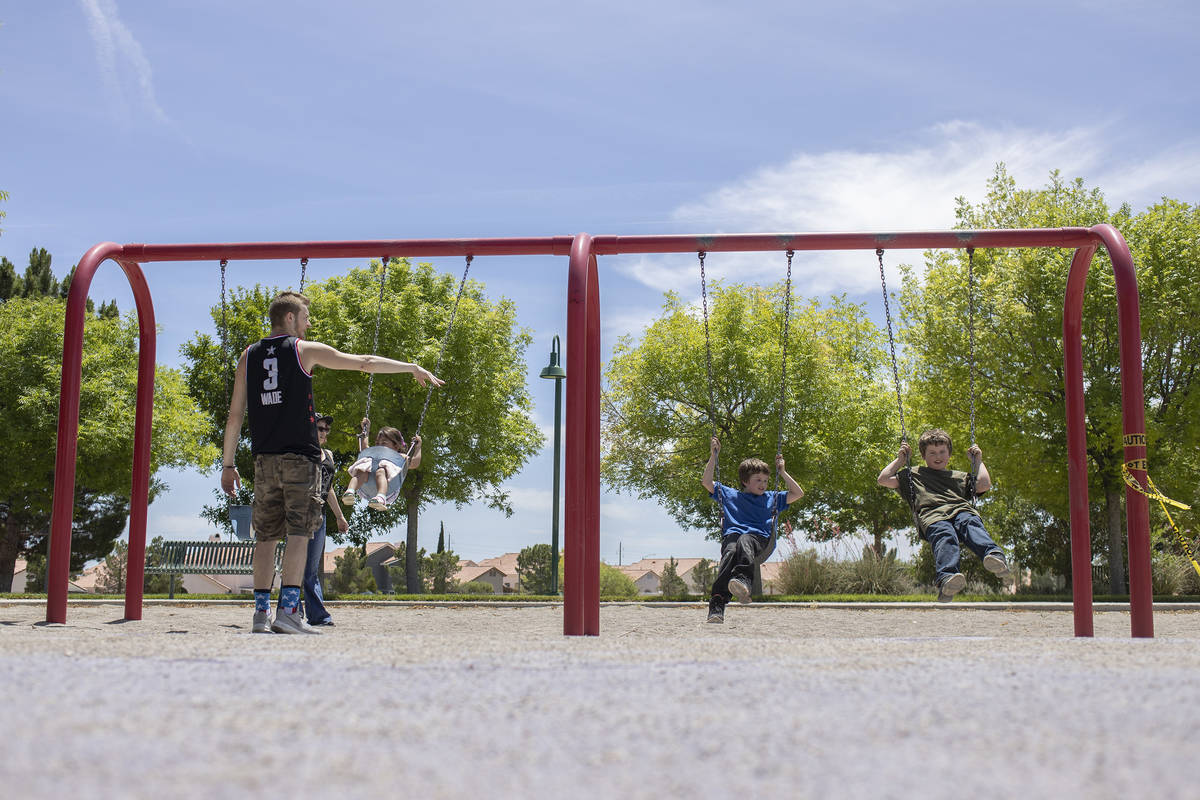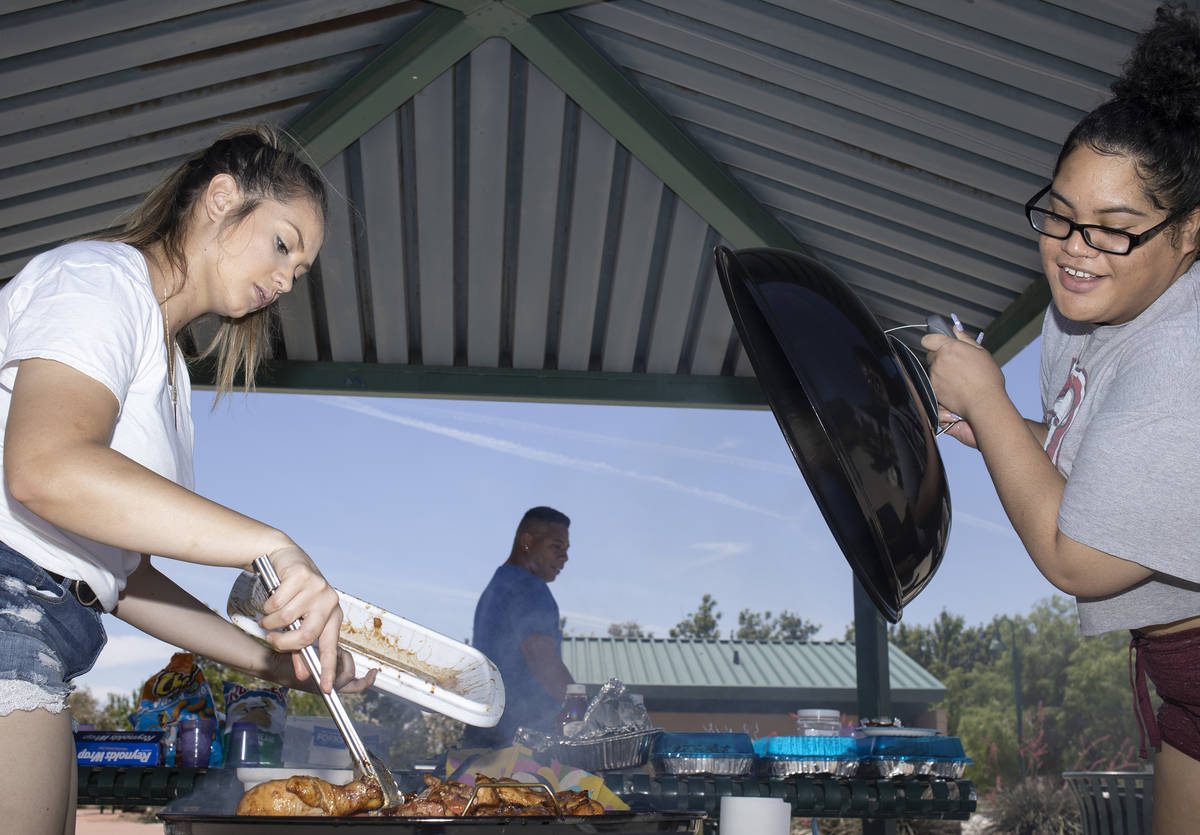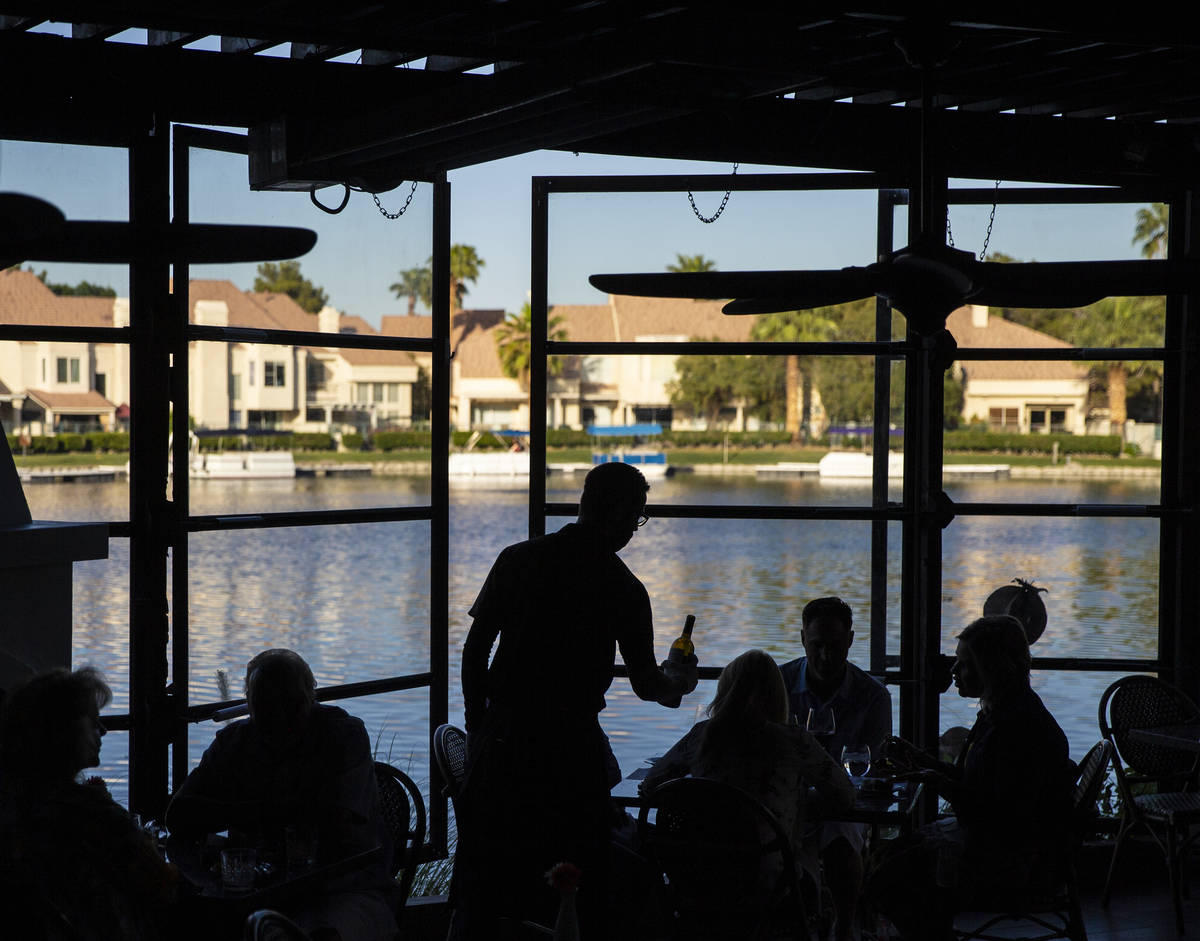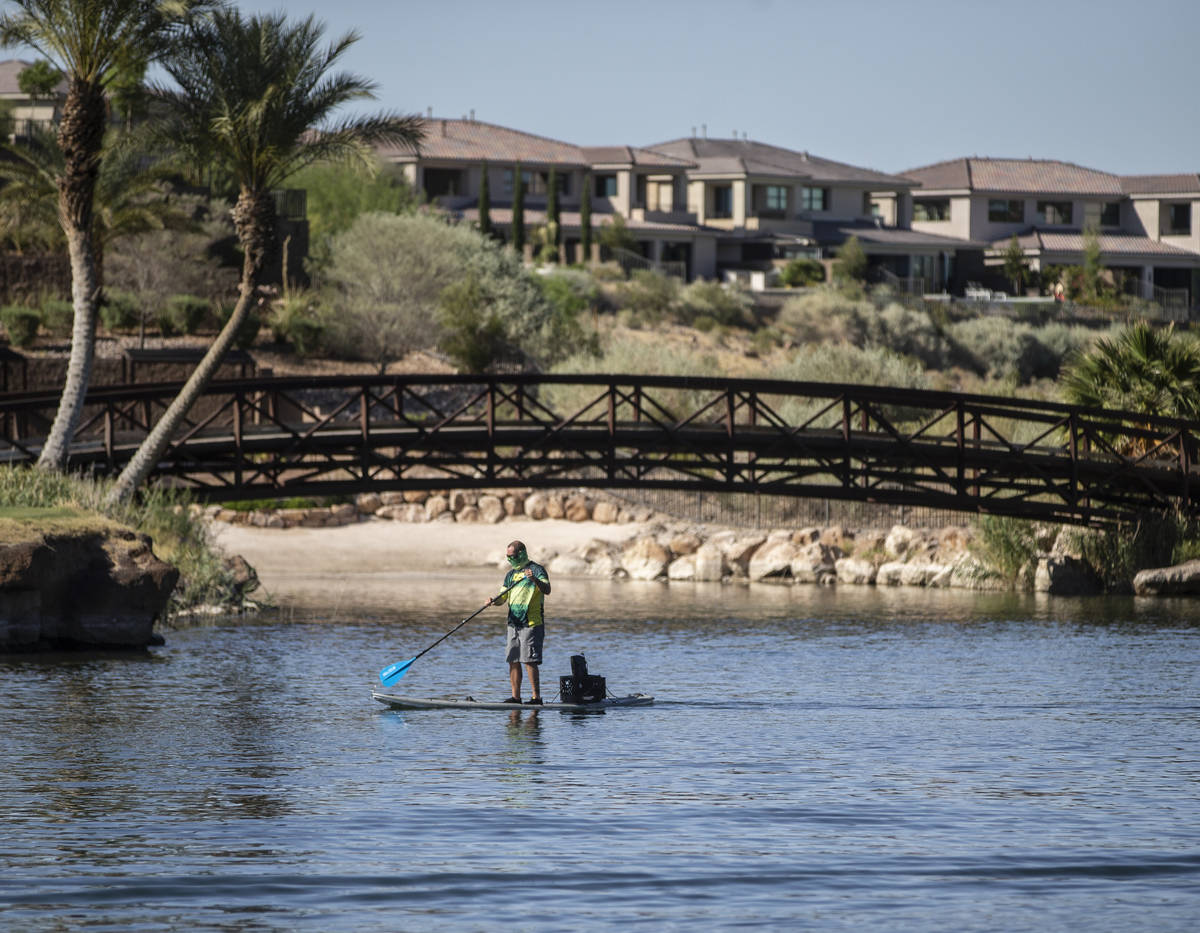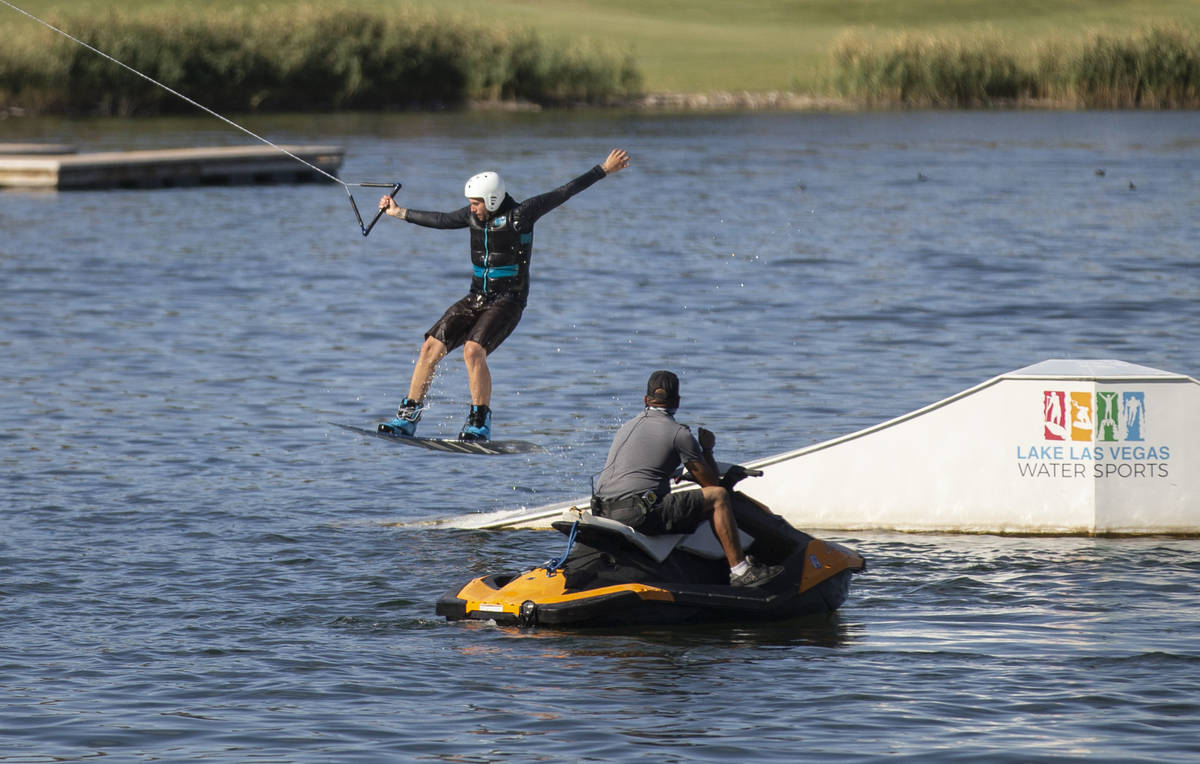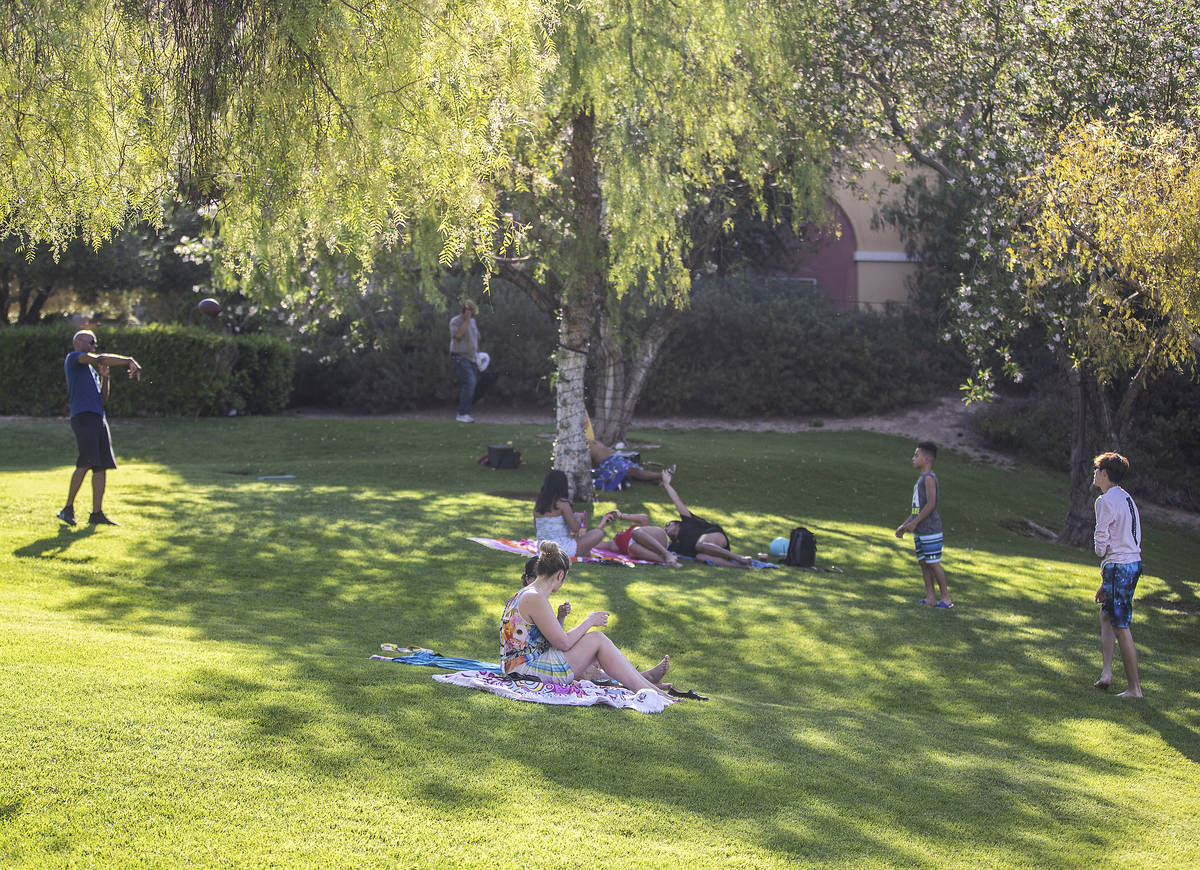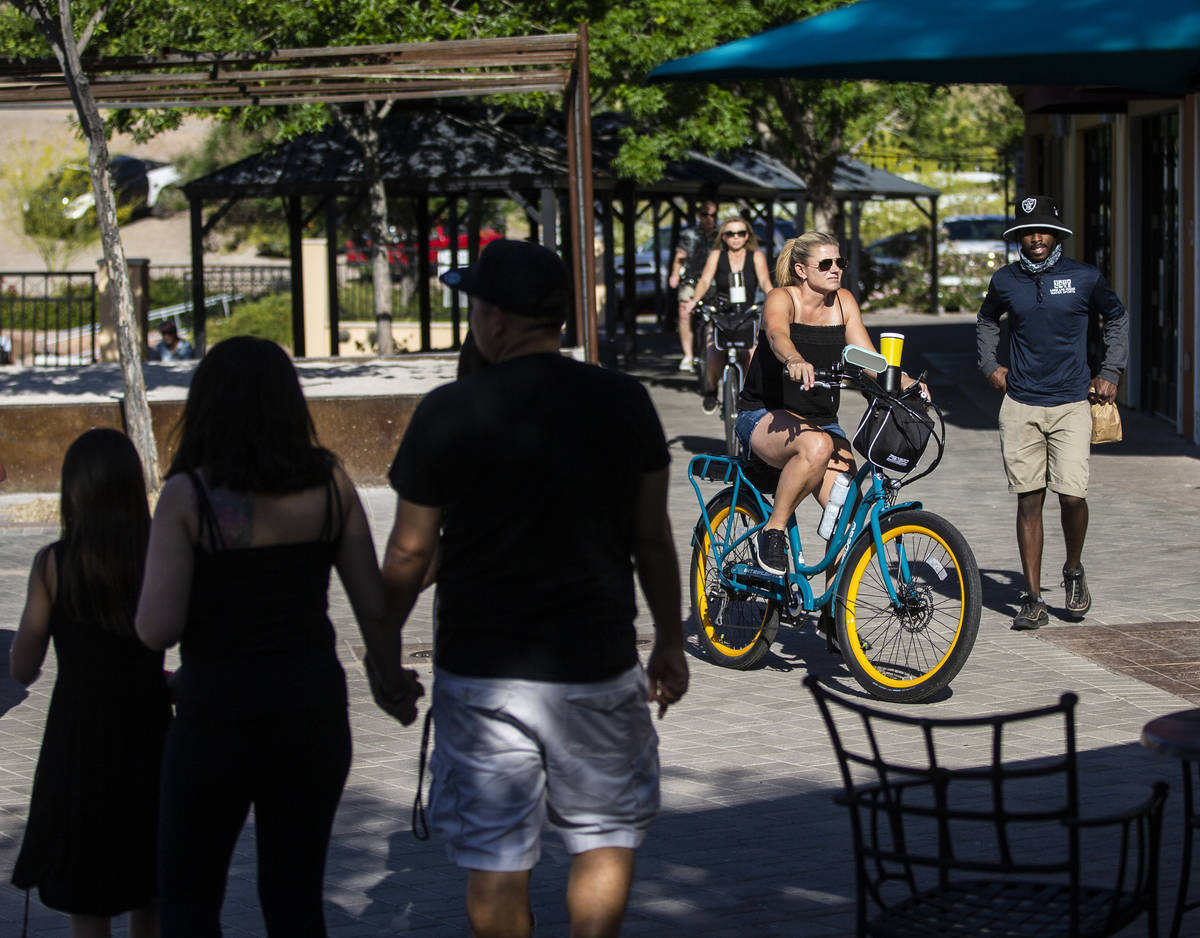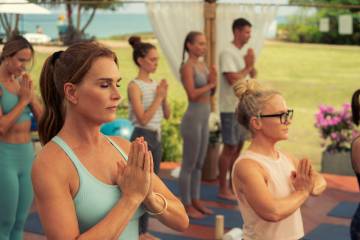Will Las Vegas summer cook the coronavirus? Don’t count on it
What effect will the summer heat in Nevada have on COVID-19?
President Donald Trump and Las Vegas Mayor Carolyn Goodman are among those who have said that hot summer temperatures could slow the spread of the disease. But the nation’s top infectious disease doctor, Anthony Fauci, has cautioned against assuming “we are going to be rescued by a change in the weather.”
Preliminary results of a study released in late April by the U.S. Homeland Security Department indicate that the virus doesn’t live long in warm and humid conditions. MIT researchers announced in March that the vast majority of coronavirus transmissions had occurred in a cooler temperatures of 37 to 63 degrees with lower humidity.
But what can we expect this summer in Las Vegas, where temperatures in the summer rise well into the 100s?
The Review-Journal asked Karen Duus, who has a doctorate in microbiology, virology and cell biology, and is an associate professor in microbiology and immunology at Touro University Nevada in Henderson, for her opinion on whether the weather will slow the virus.
Review-Journal: What do we know about how coronaviruses have behaved in warm weather?
Duus: We don’t know much, OK, because we’ve really not paid a whole lot of attention to them. The SARS (a type of coronavirus) outbreak pretty much ended in June (2003). Weather didn’t seem to play a role that anybody knew of at that point. The common cold types of coronaviruses, people just suffer through them. Up until now, we really haven’t had any reason to worry about what’s going on with coronaviruses and warm weather.
We don’t see as many colds and flu in the summer. What’s that about?
During the wintertime when it tends to be chillier — or downright frigid where I’m from in Minneapolis — people tend to huddle indoors and don’t go out. And because the heat’s on, it’s fairly dry, and that seems to be the kind of conditions that make it good for those kinds of viruses. People speculate that your mucous membranes and your nose and your throat may be a little bit drier, so they’re a little bit more prone to being infected. There’s not as much mucus, potentially, or there’s little cracks in that drier mucosal membrane.
But just the fact that you tend to be in with other people in crowded conditions, in filtered or nonfiltered air. … So you’re inside in a restaurant, you’re inside in your house, you’re inside in a school classroom or church or wherever you happen to be. When it’s cold, you don’t tend to spend a lot of time outdoors.
The 2 H’s: heat and humidity
And with the new coronavirus?
As some of these studies are starting to come out on coronavirus, it seems like there’s two components. It’s not only the heat, but it’s also the humidity. So as the temperature goes up and the humidity goes up, the viruses don’t tend to last as long. So they basically lose their infectivity faster.
So you … tend to see a drop in transmission. The research is just being done. It’s not peer reviewed yet. So there’s not a whole lot known, but epidemiologists are tracking it, and there seems to be less transmission going on in warmer places and more transmission going on in cooler places.
So researchers don’t know what the mechanism is for why this is the case?
Not really. And that’s kind of what worries me about being in the desert Southwest. Because we don’t have humidity. The temperatures increase, but the humidity does not. And also we tend to cluster indoors in the summertime — air conditioning going, and so it’s keeping it a nice mid-70s, low 80s, and low humidity, because the air conditioning takes the humidity out of the air if there’s any there to begin with. So the places where they’re doing the studies are places like Florida, and Texas and New York, places where the humidity goes up in the summertime for the most part, as well as the temperature. And we don’t have that same (situation), and nobody’s doing any studies in Nevada.
Do high temperatures kill some viruses?
You know the common cold that you hear about all the time, the little rhinovirus? It is very temperature sensitive. It’s very unstable in warmer temperatures. That’s one reason it stays in your nose. And you know you never get pneumonia with a cold like a rhinovirus cold because it can’t handle your body temperature. It does best at 31 to 35 degrees C rather than 37.
But we really don’t know how the new coronavirus responds to temperature.
No, but we know that it likes (it) lower in the lungs. So that suggests it’s much more temperature insensitive. When you’re talking about 37 degrees C, that’s 98.6 Fahrenheit, and it grows nicely in the lungs at that temperature. Clearly, it’s not as fragile as a little rhinovirus.
People are throwing out a lot of different theories right now, drawing these comparisons, saying, “See how much better California is doing than New York — could that be temperature?” But that theory just doesn’t seem to work across the board.
That’s the problem, right? It’s probably a combination of different factors. Multifactorial, if you will. And so getting a handle on exactly what the mechanisms are is going to be really difficult. We still don’t really understand why you have your seasonal flu, but you have pandemic flu, which tends to be something that nobody’s ever seen before. And pandemic flu does not go away.
Seasonal vs. pandemic
Let’s talk a little more about that.
The 2009-2010 H1NI pandemic flu started around March, April and went all the way through till about October. So it was exactly opposite of what happens in a normal flu season.
What might account for that?
We don’t really know. Once everybody’s had it or it’s gone through a couple of cycles, then it tends to get incorporated again into that seasonal flu type of thing.
So viruses we’ve never seen before behave differently.
Potentially. We don’t know if they behave differently because, again, we’re all so much more susceptible because when you’ve got normal seasonal flu, a large portion of the population is not very susceptible. They’ve had their vaccine or they’ve seen the flu, they had it last year. And it’s usually the ones that get it badly are the very young and the very old. And the very young get it badly because they haven’t seen it before, and the very old get it badly because their immune systems are not doing as well as they could.
So the problem with a pandemic flu or pandemic anything is that nobody has seen it before. So the rate of transmission can be much higher. And people are just much more susceptible to something … that their immune systems have no experience with whatsoever.
Better Call Sol
If we see coronavirus cases dwindling here in the summer, that doesn’t mean we won’t see them again in the winter or fall, correct?
Correct.
I was hoping you were gonna tell me that our high temperatures might just bake the coronavirus into oblivion.
Well, it will outside, really quickly. If somebody sneezes in your face, you’re screwed, essentially. But if they’re 6 feet away, and the little particles shower into the air, if it’s 115, more than likely, the virus isn’t gonna last very long.
Got you. So at those high temperatures …?
Yeah, I’m fairly sure that the virus will not will not last very long when it’s really hot out and you’re outside, because also the sun always shines here. And that’s also helpful because UV light does tend to kill viruses fairly quickly.
Is there some reason to be optimistic with summer coming, or summer almost here?
I would say summer’s here, as far as I’m concerned. Once it gets over 90, 95, I’m thinking summer.
I hesitate to say we don’t need to worry about it. We have that thing where we tend to be indoors, with the air conditioning on and the house closed up and the air recirculating and the humidity fairly low in the summertime. The vast majority of us tend to go from our air-conditioned house to our air-conditioned car to our air-conditioned wherever. … I think we still need to worry a little bit, or at least take precautions.
We’ll just have to wait and see what happens.
We can hope, but we can’t count on it, I would say.
This interview was edited for length and clarity.
Contact Mary Hynes at mhynes@reviewjournal.com or 702-383-0336. Follow @MaryHynes1 on Twitter.



